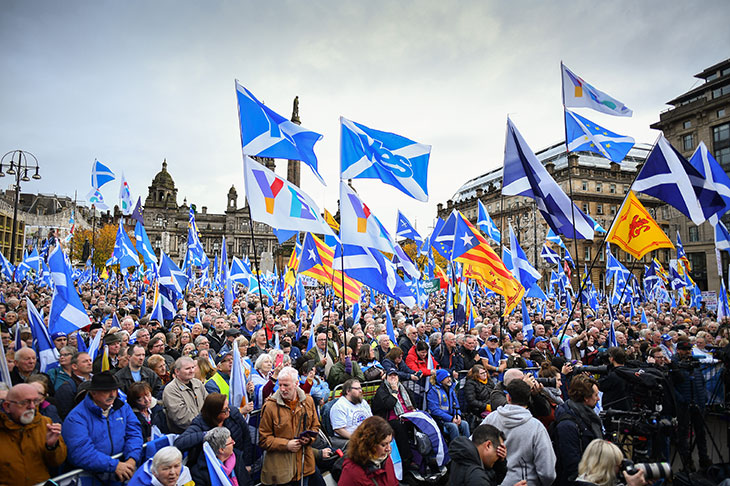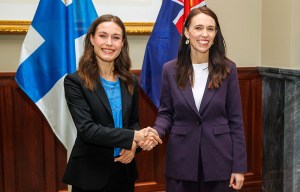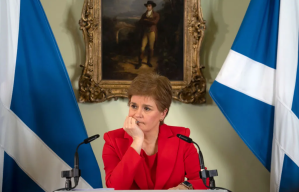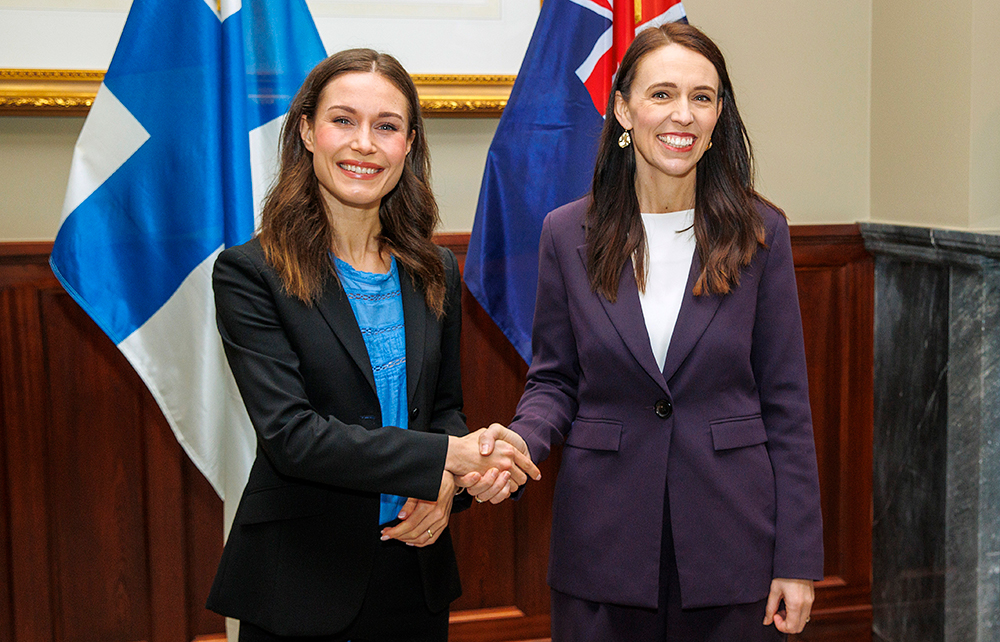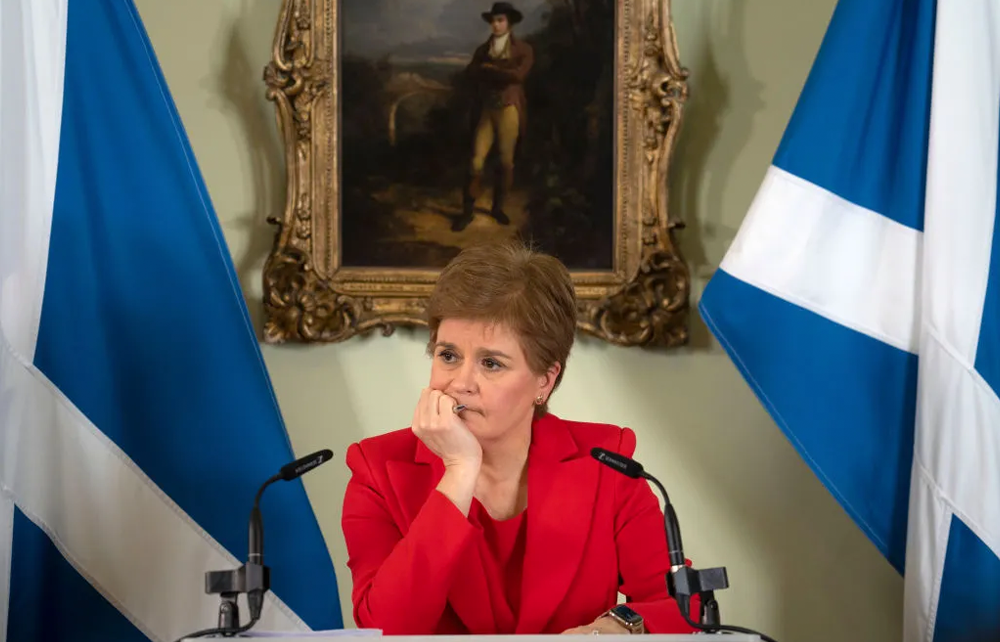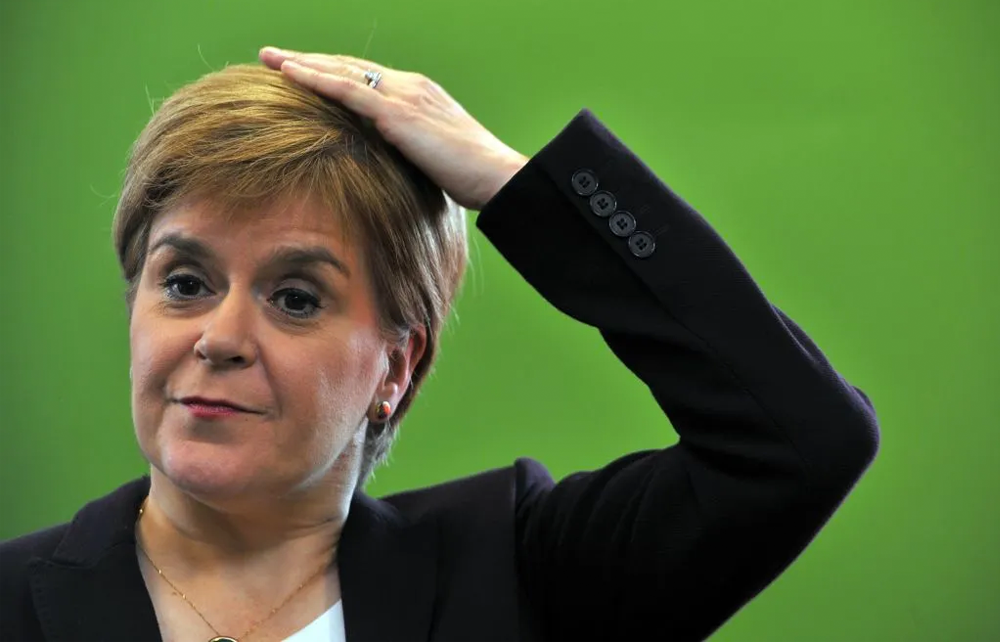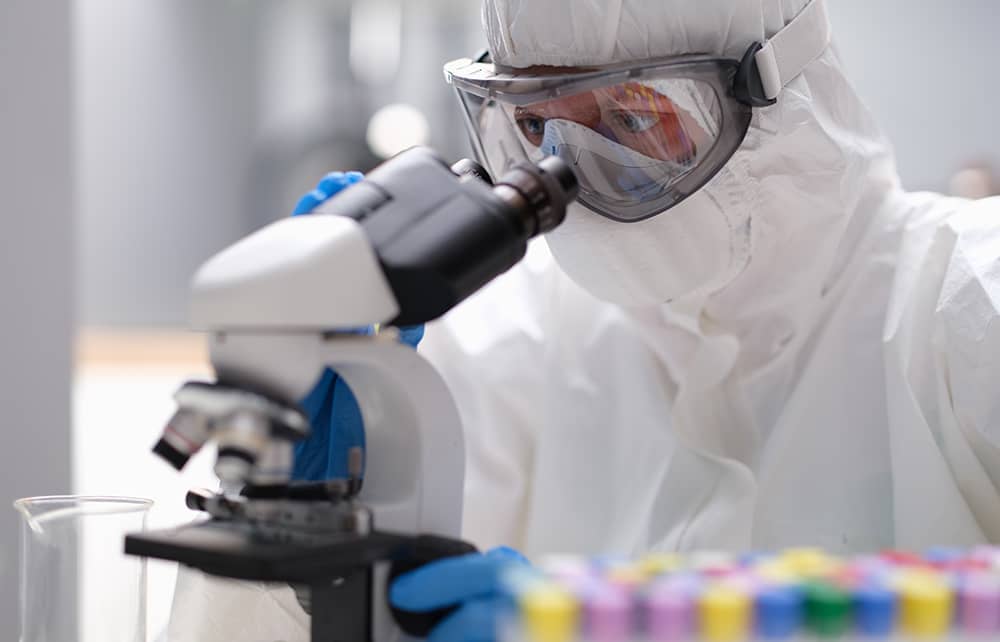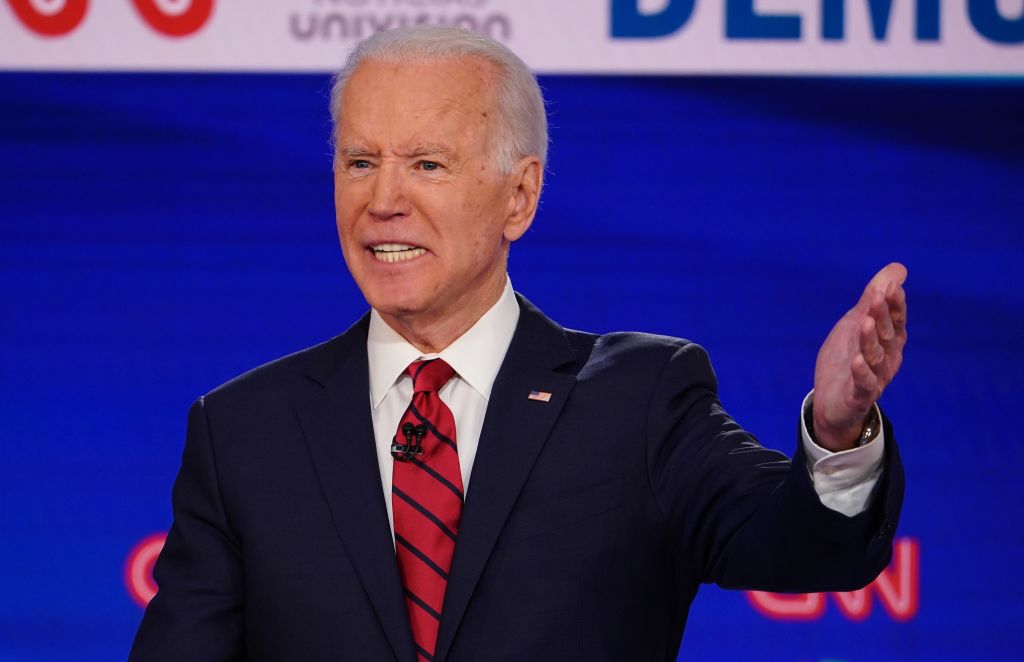In the village of Waterfoot on the outskirts of Glasgow, a lady in her thirties is explaining to her local Conservative MP, Paul Masterton, why he has her vote. It can’t exactly be described as complimentary. ‘We were talking about this the other night. Corbyn’s an absolute clown and Nicola’s just horrific so…I don’t want to say the best of a bad bunch…’ Masterton chips in before things get awkward: ‘Don’t worry. I’ve heard lots of phrases said on the door. “Best of a bad bunch” would be acceptable.’
His seat, East Renfrewshire, was a Scottish Tory stronghold before the party’s 1997 wipeout. When Boris Johnson called the general election, many expected another implosion — especially after the unexpected retirement of Ruth Davidson, who had done so much to restore the party’s fortunes in Scotland. East Renfrewshire was down as a likely Tory loss, given its status as one of the most pro-Remain seats in the country. But what might save Masterton is that the constituency also voted to remain in the United Kingdom. And this is fast becoming the main issue of the Scottish campaign.
The Tories have Nicola Sturgeon to thank for this new focus. The SNP is treating the campaign like an independence crusade. There were extraordinary scenes in George Square in Glasgow this month when it turned into a sea of saltires, with thousands calling for a second independence referendum. The first minister’s message could scarcely be clearer: a vote for the SNP on December 12 is a vote for IndyRef2. As she has since made clear, she stands ready to put Jeremy Corbyn into Downing Street in December if he agrees to let her hold a referendum in fairly short order.
There’s a good reason the SNP doesn’t want to waste time. The polls show support for independence is at its highest in years. While the UK (and, ergo, Scotland) was still in the European Union, Scotland could hope to keep its place in the bloc and minimize the disruption caused by striking out on its own. But after Brexit? In interviews, the first minister has struggled to say what an independent country’s currency would be — suggesting it might end up being the pound. But if the UK had left the EU, this would mean applying to rejoin while using a non-EU currency without a monetary union. Brussels is unlikely to agree to this.
Nor has Sturgeon been able to explain why, if she’s so worried about the trade friction that Brexit will bring, she is not as worried about friction once she takes Scotland out of the UK’s single market and customs union. Alex Salmond’s trial, due next year, on a string of sexual assault charges described in an Edinburgh courtroom last week, will also be difficult for the SNP to weather. So for the nationalists, time is of the essence.
This has obvious implications for unionists. While an independence push plays well with the SNP base, it also helps the unionists parties that are calling for tactical voting. Boris Johnson has said he’d reject any request for a new Scottish referendum — democracy, he says, means respecting the 2014 result. So the Scottish Tories now have an opportunity to win votes by pitching themselves as the voice of the union, the only force that can stop Sturgeon. ‘It’s becoming a proxy second independence referendum,’ says one Tory out on the campaign trail. ‘That means we are in a good place to unite the unionist vote.’
The collapse of Scottish Labour helps matters. Jeremy Corbyn and John McDonnell’s ambiguity on IndyRef2 has seriously damaged the party’s unionist credentials. As one senior Scottish Conservative puts it: ‘Jeremy Corbyn is very unpopular in Scotland. Boris has a negative rating of minus 36. Usually that would be a serious problem but Corbyn is minus 42.’ The hope among Scottish Conservatives is that they can convince Labour and Liberal Democrat unionists to lend them their vote on December 12 in order to send the Nats home to think again.
Of the 13 Scottish seats held by the Tories, those in the borders are viewed as the safest. Aberdeenshire and the North East, typically more pro-Brexit, are seen as reasonably secure: Labour’s proposed North Sea Oil windfall tax has also underlined how high the stakes are. Some of the seats won under Ruth Davidson in 2017 are expected to fall. However, the volatility of politics north of the border means the Tories believe they could also pick up seats. On its target list are Lanark and Hamilton East, Central Ayrshire, Perth and North Perthshire (which the SNP holds with a majority of just 21 votes), Argyll and Bute and perhaps even East Lothian.
The Liberal Democrats can also hope to pick up unionist votes in seats where they’re most likely to stop the SNP. Ian Blackford could become the second SNP Westminster leader to lose his seat if the Lib Dems prevail in the sprawling Highland seat of Ross, Skye and Lochaber. The Scottish Tories are fielding a candidate there, but without much enthusiasm. There’s a sense that they won’t push too hard if there is a chance to get a Nat out. But overall, it’s uncertain. Even those Conservative MPs with majorities in the thousands won’t dare say publicly that they believe they will hold their seat. There are too many unknowns.
Yet there is one thing most can agree on — a general lack of enthusiasm for the election. For a great many Scots (especially those unionists who dislike Brexit) it’s a choice of what option you dislike least. As Masterson puts it after several hours out door-knocking in the cold: ‘I do not imagine there will be many people leaping out of their bed on December 12 thinking, “I can’t wait to get down to the polling station and vote for somebody”. I think there’s a lot of people who see all of us as an unpalatable choice. But know they need to vote for somebody.’
Thanks to Sturgeon, there’s an increased chance that somebody will be a Tory.
This article was originally published in The Spectator’s UK magazine. Subscribe to the US edition here.



